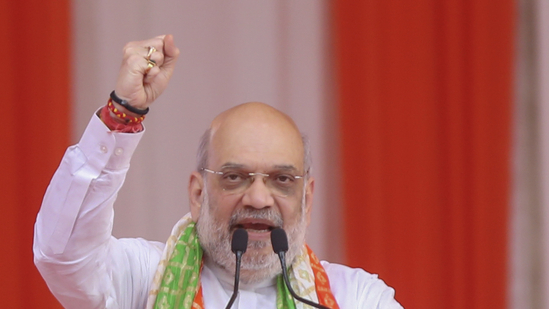In a deeply controversial and divisive statement, Union Home Minister Amit Shah accused West Bengal Chief Minister Mamata Banerjee of opposing Operation Sindoor—India’s military retaliation following the deadly Pahalgam terror attack that claimed the lives of 26 tourists on April 22, 2025. Speaking at a BJP rally in Kolkata, Shah alleged that Banerjee’s supposed opposition was an attempt to “please her Muslim vote bank,” dangerously implying that Indian Muslims sympathize with terrorists or stand against national security initiatives ,reported the Hindustan Times.
This baseless insinuation has sparked strong reactions from various quarters, as it reinforces harmful stereotypes and questions the patriotism of an entire community. Shah’s remarks ignore the fact that Muslims across India—leaders and laypersons alike—unequivocally condemned the Pahalgam attack. In a striking show of solidarity, residents of Jammu and Kashmir, many of them Muslims, voluntarily shut down businesses to mourn the victims.
Further disproving Shah’s claim is the sacrifice of Mohammad Imtiaz, a Muslim BSF jawan from Bihar, who was martyred during Operation Sindoor. His valiant contribution stands as a testament to the equal stake and commitment of Indian Muslims in the country’s security and sovereignty.
Contrary to Shah’s claims, Mamata Banerjee did not oppose the anti-terror objectives of the operation. Her criticism was directed at the politicization and public branding of the military action, which she viewed as a move to extract electoral mileage rather than a genuine commitment to national defense. Political objections to the naming or portrayal of the operation should not be misrepresented as opposition to counter-terrorism efforts themselves.
Muslim participation in India’s anti-terror strategy is not just symbolic but substantive. Muslim Members of Parliament and senior diplomats such as Asaduddin Owaisi, Salman Khurshid, Ghulam Nabi Azad, and Syed Akbaruddin have represented India’s unified stance against terrorism at global forums. Organizations like Jamaat-e-Islami Hind have consistently denounced all forms of terrorism and voiced strong support for national security measures.
Yet, by attempting to link a political opponent’s criticism with Muslim appeasement, Amit Shah has fanned the flames of communal mistrust. Such rhetoric risks pushing the country toward further polarization and undermines the very spirit of India’s secular, democratic framework.
Since 2014, India’s Muslims have faced increasing marginalization—from mob lynchings to systemic exclusion. Statements like Shah’s do nothing but further isolate an already vulnerable population. Political leaders, especially those holding high office, must focus on fostering national unity rather than weaponizing religious identity for electoral gain.
India’s strength lies in its diversity, and preserving that strength demands political maturity, responsible rhetoric, and an unwavering commitment to truth and justice. If the nation is to remain a pluralistic democracy, it must firmly reject narratives that seek to stigmatize communities and exploit communal fault lines for political profit.




